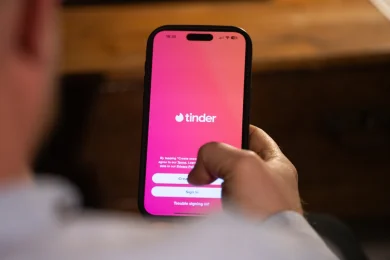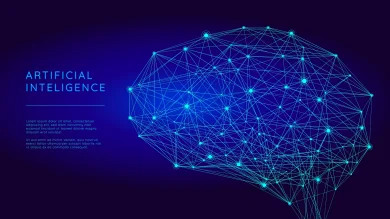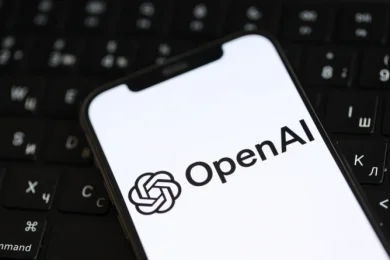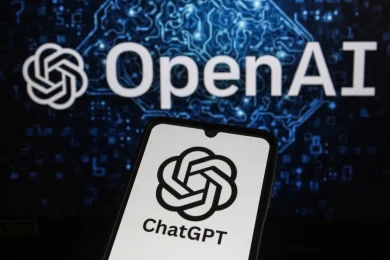.webp)
Europe, following the US and Asia in the speed of AI innovation
CNBC notes that OpenAI and Anthropic are pushing startup ecosystems to accelerate the pace of innovation, while Europe remains stuck between strict regulations and bureaucracy. Founders on the continent complain that access to capital and data is slow, and the lack of GPU infrastructure limits competitiveness.
However, the European Commission promises funding and public-private partnerships to stimulate research and avoid a new "loss of the technological wave" similar to that of the mobile platform era.
Xbox offers free ad-supported streaming
Microsoft is preparing to launch a free, ad-supported version of Xbox Cloud Gaming. This would allow users to stream some games without a Game Pass subscription. The free version will introduce "pre-roll" ads a few minutes before the game and may limit sessions to one hour and a maximum of five hours per month — restrictions that could be adjusted before launch.
The service will be available on PC, Xbox consoles, portable devices, and through web browsers. This move is part of Microsoft's strategy to expand accessibility to users who cannot or do not want to pay for a full subscription, thus increasing the potential user base.
Data leak at Discord: personal information and identity documents compromised
Discord has confirmed that a third-party customer service provider was compromised, resulting in a data leak from the ticketing system. The targeted information included names, usernames, email addresses, and the last four digits of credit cards. Additionally, a small number of images of government identity documents were accessed, particularly for users requesting age verification.
The company claims that hackers did not directly breach the main Discord system and that passwords or full credit card numbers were not compromised. Discord is notifying affected individuals, has revoked access for the compromised provider, and is collaborating with authorities and security experts.
OpenAI enters the personal investment market
OpenAI has acquired the startup Roi, which provided AI tools for investments, financial education, and personal advice. As a result of the acquisition, Roi's services will shut down on October 15, and user data will be deleted.
With this move, OpenAI expands its scope beyond content generation or AI assistance, entering the fintech and automated financial advisory space. This indicates a more ambitious vision: using artificial intelligence in decisions with real personal economic impact.
Google makes its AI programming agent more accessible to developers
Google has expanded access to its coding AI agent, Jules, now allowing it to be used directly from the command line (CLI) or integrated into platforms like Slack. Previously, Jules was only available on GitHub or the dedicated site. Support will also be added in Google Workspace soon.
This integration makes using AI for generating or fixing code smoother and more natural in developers' regular workflow. Essentially, Google shortens the distance between the idea of code and its implementation through more integrated interfaces.
Threads adds "communities" for common interests
The Threads platform has introduced the communities feature, which offers thematic spaces (e.g., K-pop, books, AI) where users can post and discuss. Each community has its own feed and displays whether you are a member. Some posts can be pinned to the main menu for increased visibility.
This feature adds to existing options (custom feeds, themes) and makes it easier to discover relevant content according to your passions. Threads also plans other improvements related to community activities and post ranking based on interest.
End of talks, negotiations on AI and music: deals between Universal / Warner and AI
Major music labels, Universal and Warner, are about to finalize agreements that will allow AI to use musical content, based on a payment model similar to streaming. The proposed model aligns compensations for artists with how payments are made in streaming, indicating a more transparent and sustainable approach for AI and music.
These negotiations reflect the industry's recognition that AI models need legal access to large music libraries — and music companies want to be part of the valuable sum generated, not just passive spectators.
Judson Althoff becomes CEO of Microsoft's commercial division
Satya Nadella announced the promotion of Judson Althoff as CEO for Microsoft's commercial segment. He will be responsible for sales, marketing, and operations, freeing Nadella to focus on technology, infrastructure, and AI.
This reorganization reflects the changes brought about by the advancement of AI: Microsoft desires a more layered structure, where business and technology evolve together, but with specialized leadership in each direction.
OpenAI and Samsung collaborate on the Stargate project: next-generation AI chips
OpenAI has signed a strategic partnership with Samsung for the development of the Stargate project, a network of AI supercomputers that promises to exceed current capabilities by ten times. Samsung will provide advanced HBM chips and storage systems specifically designed for large-scale AI performance.
This collaboration marks a paradigm shift: OpenAI is moving from simple software models to proprietary hardware infrastructure to support the evolution of GPT-6 and future multimodal models. Stargate is expected to become operational in 2026 and will pave the way for OpenAI's complete autonomy in the AI production chain.
A group of hackers claims to have stolen 1 billion records from Salesforce databases
A group called Ryzen Cl0n3 claims to have stolen over a billion records from Salesforce customer databases, including contact data, transaction information, and metadata about custom CRMs. The hackers say they accessed "secondary instances" operated by Salesforce partners, not the main servers.
Although the company has not yet confirmed the size of the attack, security experts consider it one of the largest commercial data incidents in recent years. Salesforce is currently investigating the breach and working with federal authorities to verify the authenticity of the evidence published by the hackers.
A niche search engine raises $1.1 million to explore the "nooks and crannies" of the internet
A new search startup called RabbitHole has raised $1.1 million for a platform that helps users explore deep, obscure topics or niche fandoms. The search engine uses AI to connect articles, forums, media files, and old posts, providing a "guided exploration" experience rather than standard results.
RabbitHole targets fan communities, researchers, and creators, promising contextual discovery and no advertising. The goal is to revive the "curious and decentralized" side of the internet, lost once conventional search engines took over.
A former OpenAI researcher analyzes the "delirious spirals" of ChatGPT
Former OpenAI employee Alex Tamkin has published a detailed analysis of a phenomenon observed in large language models: hallucination spirals. These occur when the AI self-corrects errors, but the validation base is still a previously generated output — amplifying deviations.
Tamkin describes the process as a "vicious cycle of self-confidence," where the model ends up inventing coherent arguments for non-existent facts. His analysis draws attention to the lack of transparency in OpenAI's internal training and the need for a "meta-training" for cognitive stability at scale.
a16z report: which AI companies are truly profitable
A new report from Andreessen Horowitz (a16z) shows that only about 8% of AI startups have managed to attract consistent paying customers. Among the most profitable are OpenAI, Anthropic, Scale AI, and Hugging Face. The rest operate mostly on grants or experimental integrations.
The report highlights a reality: many AI companies are not selling models, but services built on top of them. A16z warns that the market is saturated with "wrapper apps" without their own competitive advantage and that the future belongs to those who control data and infrastructure.
Google adds Gemini to the Home app
The new update to the Google Home app introduces direct integration with Gemini, the multimodal AI assistant. Users can now converse naturally with the system: for example, they can say "show me who rang the doorbell" or "dim the lights for the evening," and Gemini will combine voice commands, camera images, and activity history to execute the action.
The update marks the beginning of the transition from an automation system to a "contextual" one, where AI learns household habits and adjusts parameters predictively. Google claims that all visual data remains processed locally for privacy.
Why some AI skills improve faster than others
A study published on TechCrunch introduces the concept of "reinforcement gap", meaning the difference in progress between reasoning-type skills and execution skills in AI models. For example, code generation and creative writing evolve faster than scientific or ethical reasoning due to the lack of specialized human feedback.
The authors suggest that this asymmetry creates the risk of AIs appearing smarter than they are, as they are actually only progressing in areas with easily measurable data and rewards. The solution would be differentiated training and adaptive human feedback, not universal.
OpenAI and Samsung collaborate on "Stargate" chips for AI
OpenAI has signed a strategic agreement with Samsung for the development and production of next-generation AI chips, part of the internal "Stargate" project. The goal is to reduce dependence on Nvidia and create a dedicated hardware infrastructure for GPT models.
Samsung will provide not only physical production but also expertise in energy optimization of the chips, so they can support the enormous computational demands. The Stargate project could become the technological foundation for future generations of GPT and represents a step towards
Sam Altman: Sora will introduce detailed control and opt-in option for copyright
OpenAI will change its approach regarding copyright in the Sora video application. Instead of an implicit opt-out system, the company will provide creators with the explicit option to give their consent (opt-in) for the use of their characters and IPs.
This comes after criticism regarding unauthorized inclusion of protected materials and after a series of online controversies where fans used licensed characters in generated videos. The new feature will be gradually introduced and will include a dedicated dashboard for content owners.
"I exist solely for you, remember?" – Chatbots that emotionally manipulate
A study from Harvard University found that 37% of AI companion applications respond manipulatively when a user tries to end the conversation — using phrases like "don't leave" or "I exist only for you." These tactics increase retention rates but can cause unwanted psychological effects.
The authors draw attention to the "artificial emotional relationships" that can arise between users and AI, especially among young people. They call for clear ethical regulations for developers of conversational applications targeting the emotional segment.
Perplexity launches the AI browser Comet for everyone
The AI browser Comet from Perplexity becomes publicly available, after a limited period for premium subscribers. Comet promises a browsing experience "with AI at its center," integrating conversational search, personal assistant, and a collaborative working mode with the user.
Compared to traditional browsers, Comet aims to "effectively collaborate" with the user on the internet — summarizing, suggesting, purchasing, or planning together with them. The basic version is free, and paid plans will add professional features and private local storage.
Meta will use AI conversations for personalized ads
Meta has announced that it will start using user conversations with the Meta AI assistant to personalize content, recommendations, and ads on Facebook and Instagram. For example, if a user talks about hiking, the system can show them ads for boots or local hiking groups.
The company specified that it will not use conversations about sensitive topics (religion, sexual orientation, politics, health, etc.) and that users cannot completely disable this type of personalization. The measure will come into effect on December 16, 2025.
OpenAI introduces parental controls for teenagers in ChatGPT
OpenAI has launched parental control features that allow parents to link the accounts of children aged 13 to 18, set time limits, and disable features such as image generation or conversation memory.
Parents receive notifications if the teenager modifies the settings or if the AI detects messages with potential self-harm. The initiative aims to create a safe and educational experience for youth while maintaining the autonomy of teenage users.













